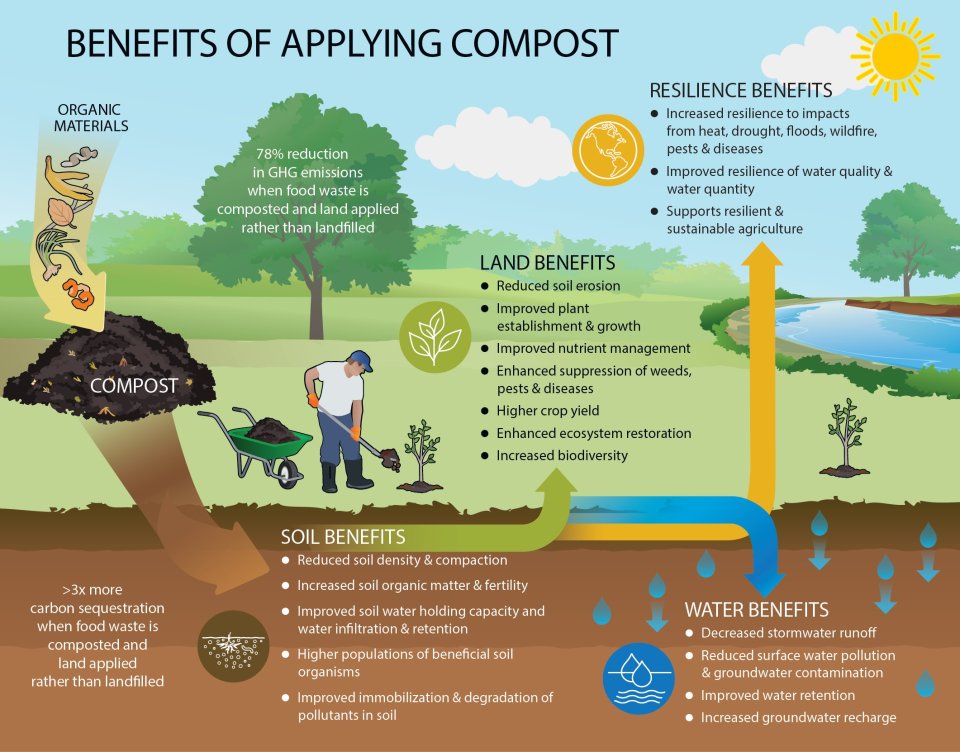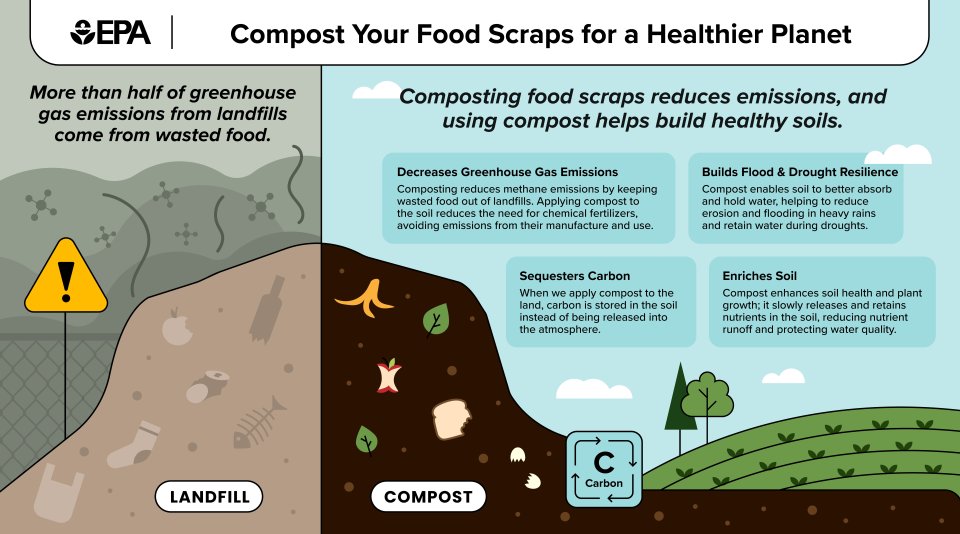Environmental Value of Applying Compost
Despite differences amongst scientific studies (e.g., locations, variability in compost treatments, magnitude of benefits observed), the overarching consensus in the scientific literature is that the use of compost improves soil health. Compost use has numerous benefits for a variety of sectors, and scientific research demonstrates that compost use can outperform conventional materials and practices that are typically used. This report summarizes the state of the science about the environmental benefits of compost use in a variety of sectors: agriculture, horticulture and landscaping; green infrastructure and stormwater management; ecosystem conservation and restoration; and contaminated site remediation.
View the text on the Benefit of Applying Compost graphic below.

The benefits compost provides are rooted in improved soil health, which leads to benefits for surface and groundwater, vegetation, and whole ecosystems. Specific benefits of using compost are relevant and valuable across sectors. For example, compost enhances the soil’s ability to absorb and retain water, which in turn helps farmers by reducing the need for irrigation, helps public works departments by reducing stormwater runoff into sewer systems, and helps communities cope with extreme drought or flood conditions.
View the text on the Compost Your Food Scraps graphic below.

In the face of increasing air temperatures and changing precipitation patterns, compost use has emerged as a versatile, low-cost solution to improve resilience to floods and droughts.
The challenges associated with compost use are also discussed to provide context when relevant about possible adverse impacts. The report concludes with identification of research needs to better inform policymakers and potential compost users.
